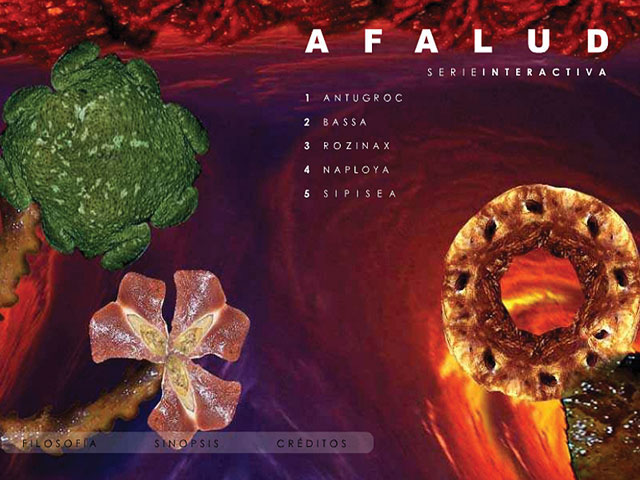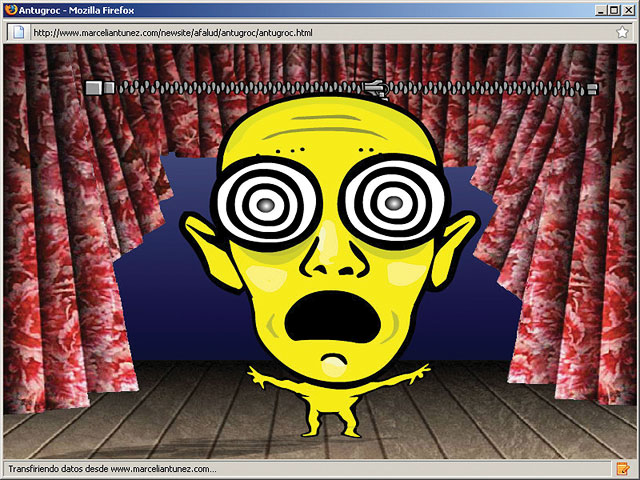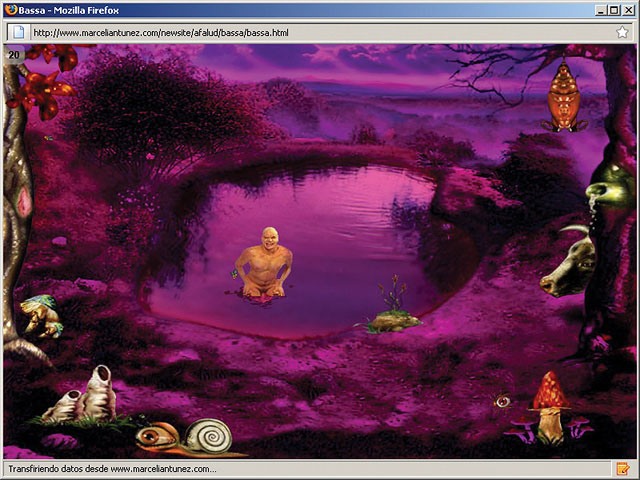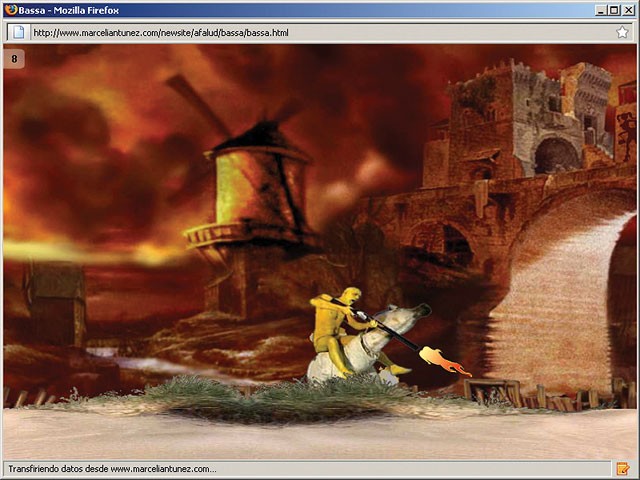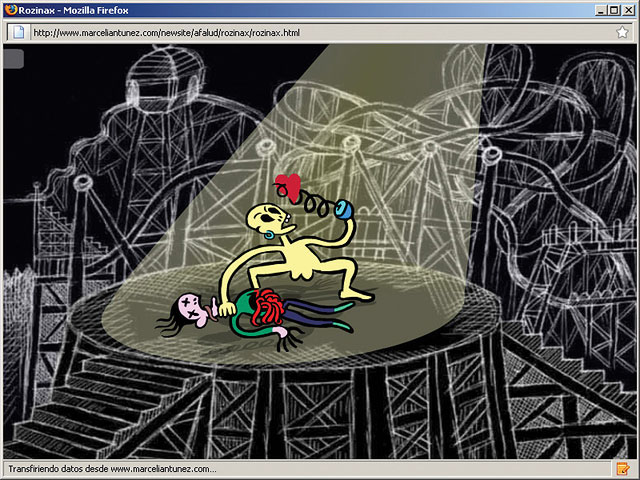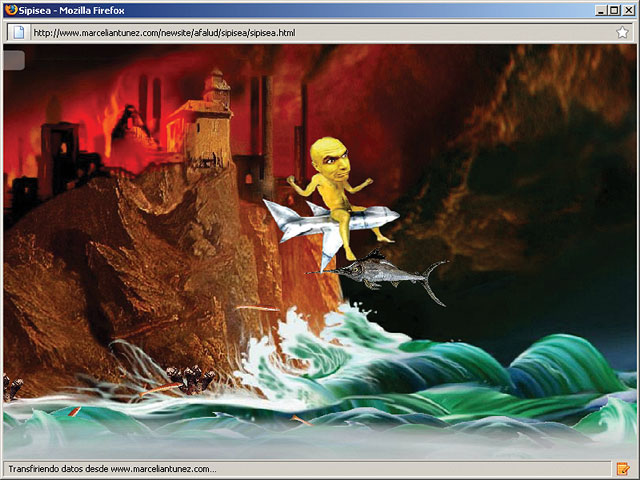
In the piece Afalud, Marcel.lí Antúnez presents the interactive version of his character from Afasia. The word "afasia" (aphasia) refers to an inability to understand the spoken or written language resulting from brain damage, and is the title that summarizes Marcel.lí's unique take on Homer's Odyssey. The plot of this founding myth is adapted to a set of images and sounds that Marcel.lí controls through his "dreskeleton" in a set of non-verbal situations that result in a disjointed and striking narration. The original verse is replaced by an ample interactive device that places the viewer in front of, for example, a psychedelic island of Lotus-eaters, a cartoonish Circe or the sirens consummating an orgiastic ritual. Afalud is the game adaptation of Afasia. The metamorphosis of the play Afasis to the game Afalud (Afasia/Ludic) compresses the complexity of the show to the setting provided by the typical videogame interfaces: screen, speakers, keyboard and mouse. This transition requires that greater importance be placed on Antugroc, the game's main character, and that the user be given a more enjoyable experience.
Antugroc, a robotic Ulysses, is both an actor and spectator of his own destiny, as he is manipulated not by the gods but by the audience. He sets off on an ever-changing adventure and changes from a Homeric character into a digital avatar.

